Healing from an abusive relationship can be a long and difficult journey, but it is possible. Here are some key steps to help you on your path to recovery.
If you are reading this post, it means you have decided to heal from an abusive relationship. Congratulations for your decision! Here are 5 tips to heal from an abusive relationship!
We have all been there… we have all fallen in love with someone we thought was the man of our dreams but who, instead, became our worst nightmare. One particular relationship I was in was physically, emotionally and verbally abusive. It completely deteriorated any sense of “self” that I had and left me a shell of my former self.
One in four women will experience domestic abuse in her lifetime. We might even know someone experiencing it—she might sit next to us on the bus on our way to work, she might be in front of us in the checkout line at the supermarket, she might even work in our same building.
Recovering from the abuse I endured was one of the most difficult things I have had to do in my life. Not only did I have to come to terms with what I experienced, but I also had to recover the loss of identity that happened as a result of what was going on in my relationship.
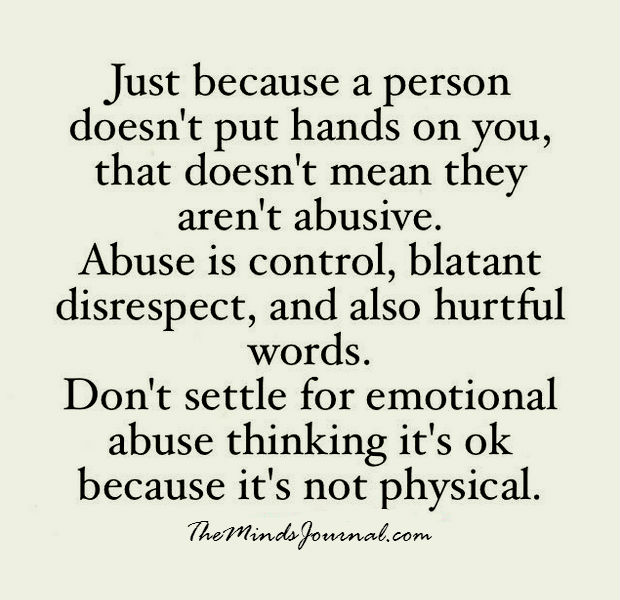
After gathering up the strength to walk away, here’s what I did to pull myself out of the abyss the abuse left me in:
Leaving And Healing From An Abusive Relationship
1. I sought professional help.
This might be a given but many abuse victims are too ashamed or humiliated to even feel comfortable telling their stories to a stranger. When we open ourselves up to another human being—especially one who has our best interests at heart—we open a space for healing in our lives.
I count my therapist as one of my most trusted advisers and tell her everything, even details that I might find unnecessary to my story.
She is able to take the details and help me discover how I was attracted to someone with an abusive personality. She also gives me the tools to help bolster my sense of identity and safety.
By seeing her every week, I make my recovery from the abuse a priority and, in turn, I make myself a priority. Therapy is the most empowering thing I could do for myself, especially in face of what I lived through.
Related: 18 Relationship Red Flags You Should Never Ignore
2. I started talking about my experience.
When we feel something is too shameful to talk about, we promote the belief that abuse is something taboo. By opening up and sharing our experiences as abuse victims, we remove the stigma and we put a human face to the suffering.
I have been told that my story has helped several other women cope with the abusive situations they were in. It makes me feel validated as a human being—and makes me thankful that my life’s most painful experience could help someone else.
Related: Toxic Vibes Dragging You Down? 10 Signs It’s Time To Break Up With Your Negative Friend
3. I began cultivating dormant interests.
This one was hard for me as, by the end of our relationship, every piece of my persona was dictated by him. One thing I love more than anything is writing—something he would regularly tell me I was horrible at.
Now, when I sit down to write, it is a victory for me. Not only am I doing something I truly love, I am showing that the abuse can’t keep me down and that I can move forward. The more I write, the more confident I feel. When we feel confident in our talents, we can truly heal the wounded inner self.
4. I gave the relationship a funeral.
This was one of the more poignant moments of my healing journey. I wrote a goodbye letter to him, sealed it in a bottle, and threw it in the St. Lawrence River.
As I watched that bottle go up into the sky, I felt a freedom in my soul that I never experienced before. I was able to let go of the hurt and the pain and, from that day on, I was able to start living again.
Related: Breaking Free From The Toxic Web: 9 Steps For Dealing With A Narcissist In Your Life
5. I took time for myself.
I didn’t date for a long time after that relationship ended. I knew I couldn’t enter into another relationship if I didn’t heal the inner wounds from my past. By doing this, I came to know and love myself more than I ever did before in my life.
Now, I don’t sell myself short in any relationship I enter into. When we know our worth, we automatically don’t accept anything less than the best for ourselves.
Overall, my experiences have taught me that life is too short to be unhappy. An abusive relationship might seem like hell—and it is—but the true test of a person’s character is how he or she rises from adversity.
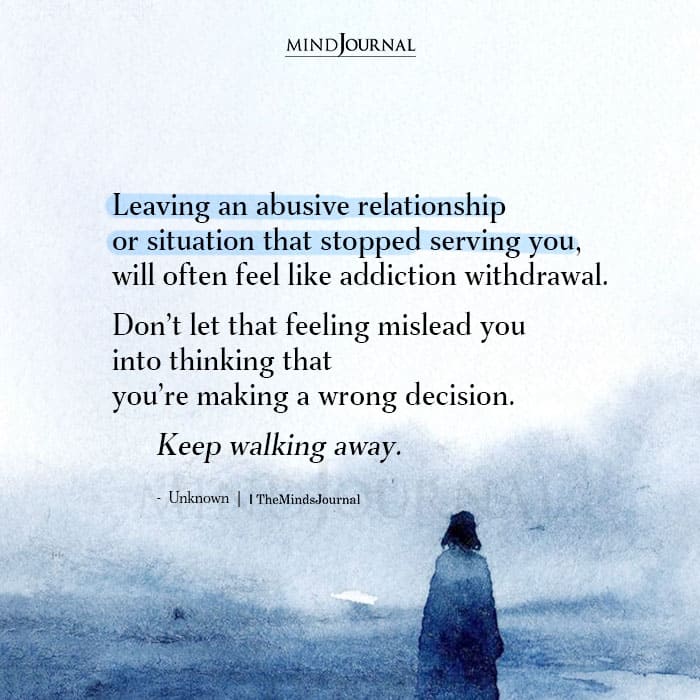
By clawing my way out of my abyss, my life is more beautiful, more fulfilling and more authentic.
Leaving an abusive relationship is tough as it is, but are you ready to heal from emotional abuse in a relationship?
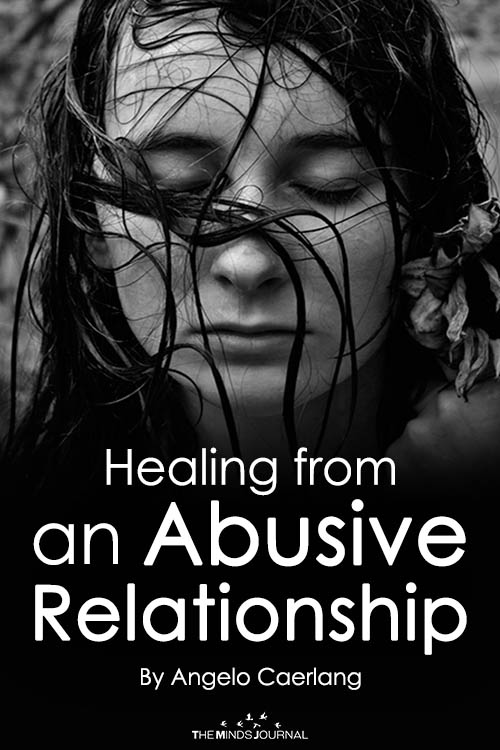
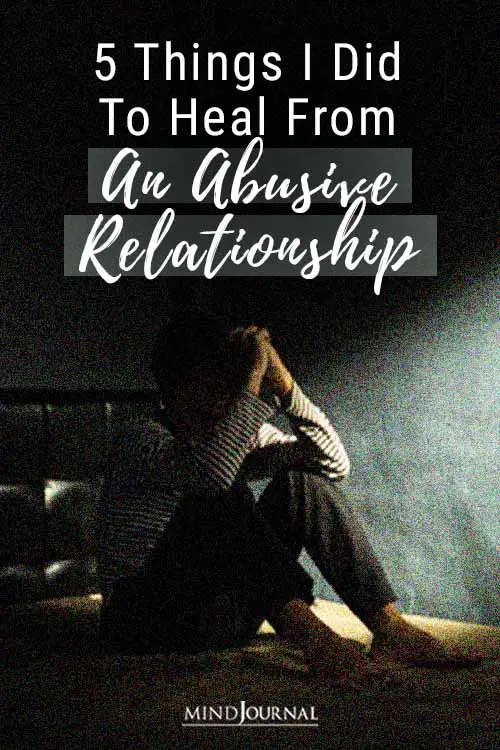
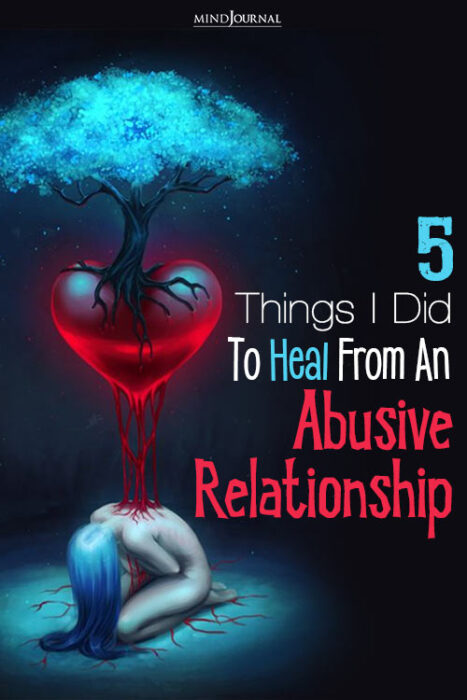
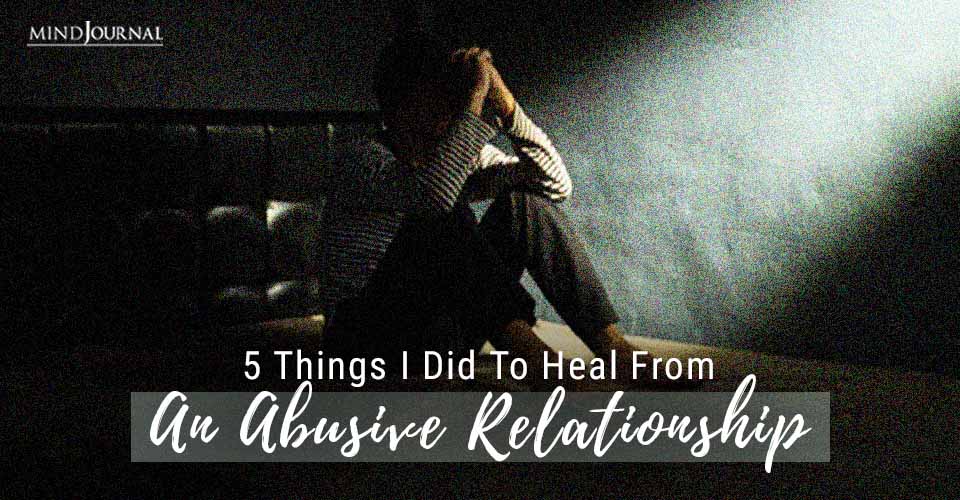







Leave a Reply
You must be logged in to post a comment.